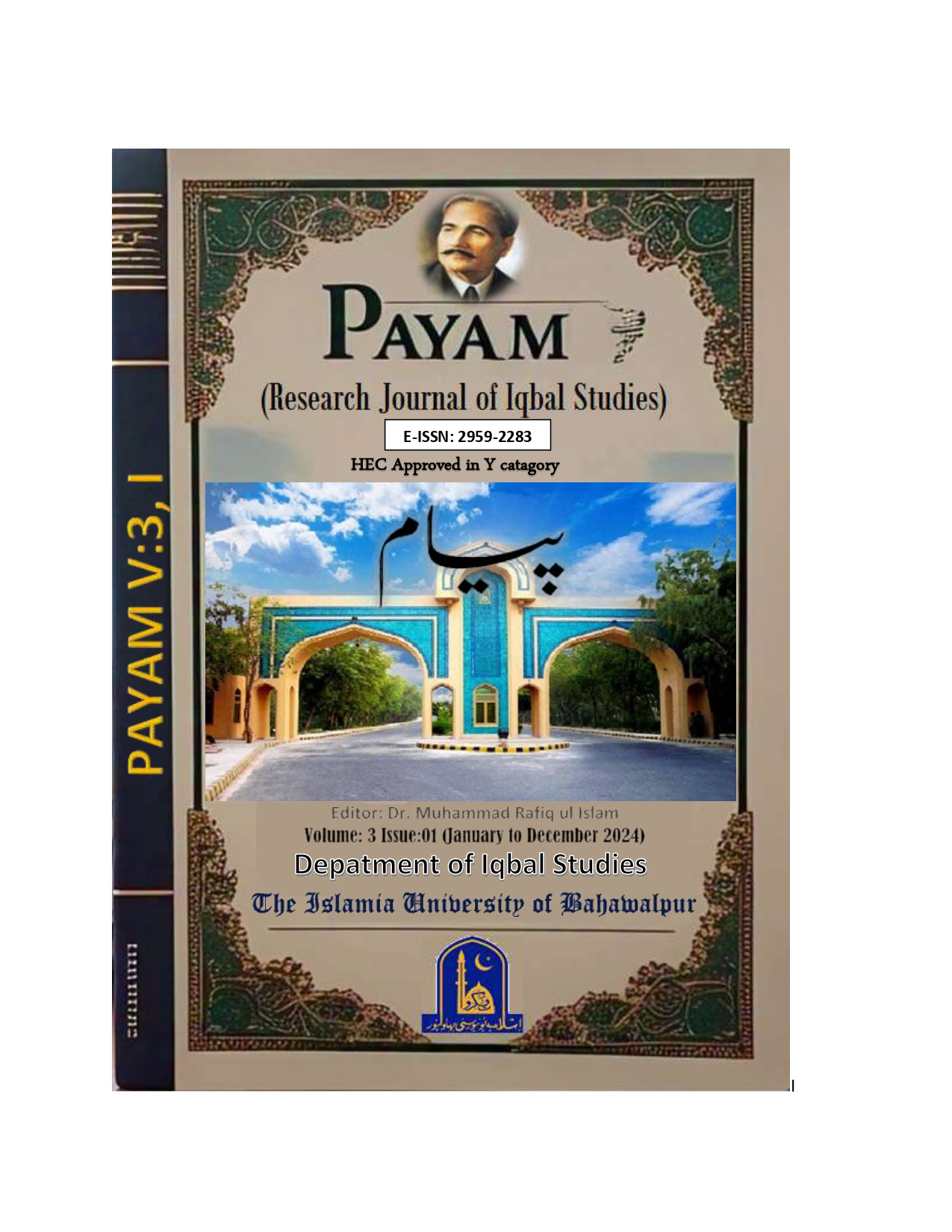The Decline of Ijtihad and Its Revival in Iqbal’s Vision
Keywords:
Iqbal, Ijtihad, Decline of Ijtihad, Revival of Ijtihad, Muslim history, Tradition, School of thought, Modernity in Islam, Intellectual decline, Taqleed (Imitation), JurisprudenceAbstract
This article delves into Allama Iqbal's concept of ijtihad, emphasizing its significance in revitalizing Islamic thought and practice. Ijtihad, or independent reasoning, emerged as a response to the need for legal reasoning beyond the Quran and Sunnah. Iqbal advocated for ijtihad to empower Muslims, promote intellectual freedom, and integrate modern scientific and philosophical advancements. Iqbal’s vision for ijtihad was deeply practical and forward-looking, seeking to reclaim Muslims' intellectual and cultural independence. He believed that Islam's core principles were timeless, but their application needed constant reevaluation to address changing societal needs. This article explores the relevance of Iqbal's concept of ijtihad in the modern world, highlighting its potential to foster a balanced approach between tradition and modernity. By examining Iqbal's ideas, this research aims to contribute to the ongoing discourse on Islamic reform and intellectual revival.




 PAYAM ( Research Journal of Iqbal Studies) by
PAYAM ( Research Journal of Iqbal Studies) by 